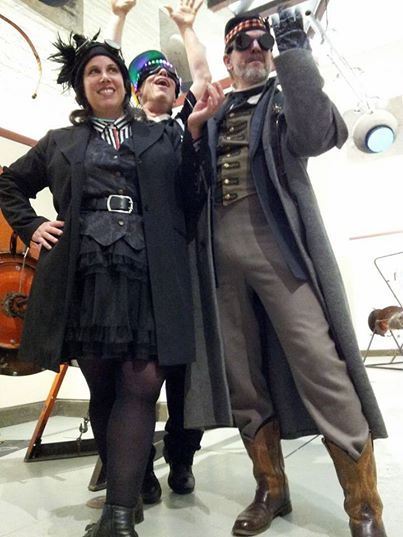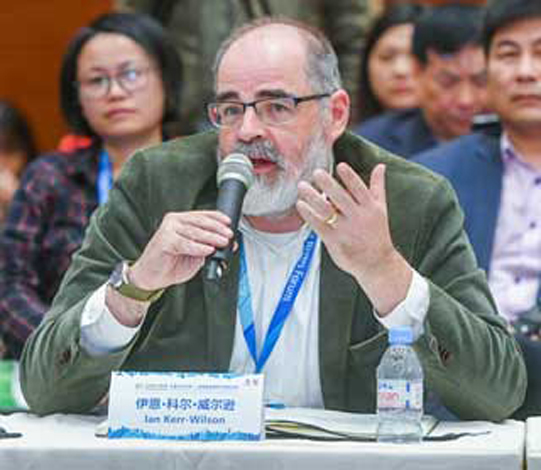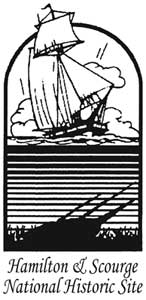
Michael McAllister has worked in museums and archaeology for over 30 years. He was the Project Coordinator of the Hamilton & Scourge National Historic Site between 2008 and 2018. In that time along with partners at Parks Canada Underwater Archaeology Service, ASI group, Canadian Conservation Institute, Yap Films, film maker Peter Rowe and the Department of the United States Navy: History and Heritage Command 3 underwater surveys were completed, the team engaged in Long Term Management Planning, a Risk Assessment, created a new website with virtual shipwrecks, produced a tv episode (Warships Down – episode 6 of the Dive Detectives Series), and a film Shipwrecked on a Great Lake. When he is not seconded to work on staff scheduling for the vaccination delivery team he is the Assistant Curator at Battlefield House Museum & Park in Stoney Creek.
Originally Ian Kerr-Wilson was scheduled to make this presentation, but due to a last minute family emergency he was unable to present.
Ian Kerr-Wilson

Recently retired as Manager of Heritage Resource Management at the City of Hamilton, Ian has worked in curatorial programming and management at industrial, military, marine and domestic heritage sites since 1981. Ian coordinated the Hamilton and Scourge National Historic Site directly for two decades, before supervising his successors in that position. In retirement, he looks forward to consulting and advocating on heritage matters.
Web Site: http://1812tour.hamilton.ca/hamilton_scourge.html
Accessibility is an Issue: Public Education and the Hamilton & Scourge National Historic Site

The Hamilton and the Scourge are two American War of 1812 schooners resting on the bottom of Lake Ontario. Together they form one of only two shipwreck sites given a level of protection by the provincial ministry which prevents sport diving (the other being the Edmund Fitzgerald). As such, they are perhaps the most inaccessible National Historic Site in the nation.
The talk will highlight the punctuated waves of public interest which have attended the wrecks since their discovery in the 1970s. These waves of interest rise, fall and repeat as sporadic research projects take place, resulting in repetitive discussions about `what to do about the wrecks.’ The talk will provide an overview of research into the wrecks since their discovery, and examine how we might break free from the circularity of these discussions.



